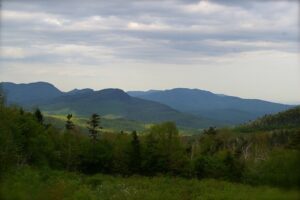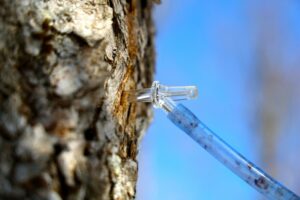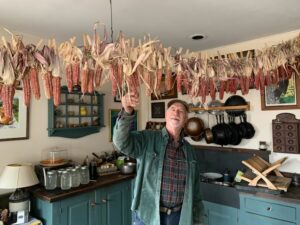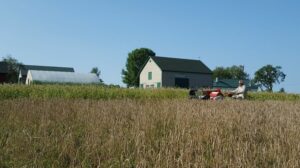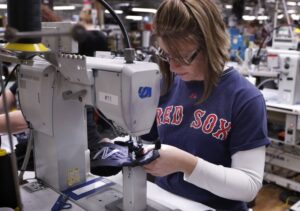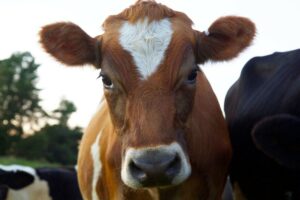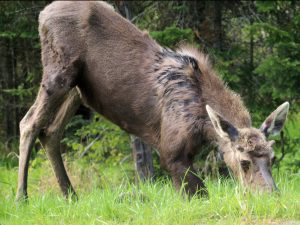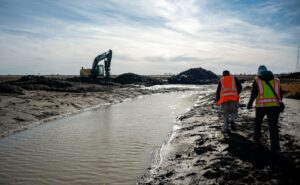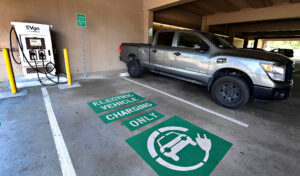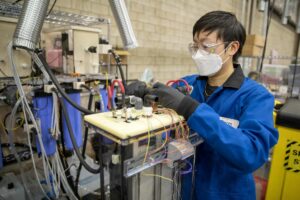Stories
Increased visitorship in New England national forests leads to increased stresses on landscape
A lot more people have visited New England’s national forests throughout the COVID-19 pandemic than in years past, and researchers at the University of New Hampshire say that’s created issues for the trails, and for the hikers. Michael Ferguson, a professor of recreation management and policy at the University of New Hampshire, says visitorship in…
Read MoreThe iconic maple syrup industry is an economic driver in New England and in Maine, the third largest producer in the U.S. But rising temperatures and erratic sap runs are posing big challenges and foreshadowing even bigger changes. If scientists’ predictions are correct, the northernmost reaches of Somerset County could become one of the last…
Read MoreSeed saving has deep ties to Maine’s past. In the face of climate change, it’s a future imperative
The ground is starting to thaw on a gray Saturday afternoon in late March, which means it’s almost time for Albie Barden to prepare his fields for corn. Barden usually plants two or three varieties of corn at his home every year in Norridgewock, Maine. When growing season is over and the corn is harvested,…
Read MoreClimate change impacts farmers and global supply chains. Maine’s growing grain economy could help
Sean O’Donnell started growing grains about 10 years ago at Rusted Rooster Farm, 45 minutes north of Skowhegan on the border of Maine’s Somerset and Piscataquis counties. He began on a small scale, using grains as a cover crop planted in rotation with other crops to improve the health of the soil. He and his…
Read MoreThe World Bank says the fashion industry is responsible for about 10% of global emissions, leading some brands to take stock of their outsized carbon footprints. New Balance Athletics operates three factories in Maine and has pledged to be net zero by 2050. The company’s factories churn out thousands of sneakers every day. An MIT…
Read MoreMembers of Vermont’s organic industry are celebrating after the U.S. Department of Agriculture closed a loophole in dairy standards. The USDA Origin of Livestock rule outlines how organic dairy farms can source the cows they use to produce milk. Generally, organic dairy farms can only transition cows from conventional care — using antibiotics and cheaper, non-organic feed…
Read MoreAs New England winters warm, moose are getting overwhelmed by winter ticks. Some scientists say hunting could help.
On a cold, sunny day in a remote part of Vermont’s rugged Northeast Kingdom, Nick Fortin — Vermont Fish and Wildlife’s lead moose biologist — holds onto his snowmobile helmet as he gestures to some young trees. The new growth from logging at this spot, in addition to its remote and mountainous setting, makes for…
Read MorePlunked on a southern New England shoreline is an understated and misunderstood ecosystem: Great Meadows Marsh in Stratford, Conn. For decades, that site was treated as an ugly nuisance, but it’s the focus of a $4 million restoration project aiming to make the coast more resilient to climate change. Rick Potvin, manager of the Stewart…
Read MoreA Connecticut-run incentive designed to help low- to middle-income buyers purchase an electric vehicle continues to struggle. New data show income-eligible rebates accounted for only about 1% of all rebates issued through the state’s Connecticut Hydrogen and Electric Automobile Purchase Rebate (CHEAPR) program. “That’s not a significant uptake,” said Anthony Cherolis, who is with the…
Read MoreRusting batteries could help power the electric grid of the future
The same chemical process that ruins your bike chain and eats away at your outdoor grill could help power the electric grid of the future, and perhaps even help save the planet from catastrophic climate change. Company officials from Somerville startup Form Energy are developing batteries powered by rust, and claim their low-cost, long-duration technology can…
Read More
